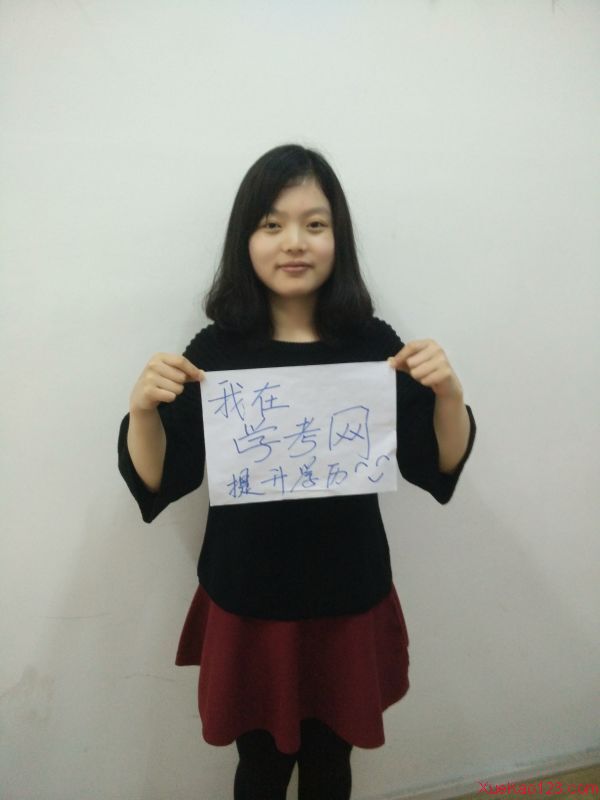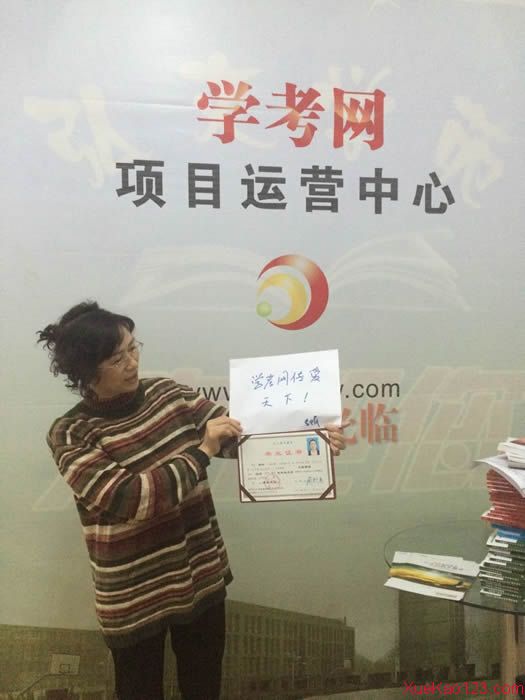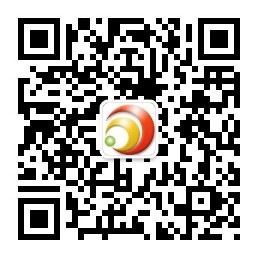2020骞存睙瑗挎垚鑰冮珮璧烽粸銆婅嫳瑾炪€嬭€冨墠娌栧埡椤�(涓€)
銆€銆€銆愬皫(d菐o)璁€銆戣窛闆�2020骞存垚浜洪珮鑰冭€冭│閭勬湁鏈€鍚庝笉鍒板叐鍊嬫湀鐨勬檪闁擄紝璜嬪悇浣嶈€冪敓鍊戞姄绶婃檪闁撳倷鑰冿紝涓嬮潰鏄睙瑗挎垚鑰冪恫(w菐ng)鐐哄ぇ瀹舵暣鐞嗙殑2020骞存睙瑗挎垚鑰冮珮璧烽粸銆婅嫳瑾炪€嬭€冨墠娌栧埡椤屻€�
銆€銆€榛炴搳鏌ョ湅>>2020骞存睙瑗挎垚鑰冮珮璧烽粸銆婅嫳瑾炪€嬭€冨墠娌栧埡椤�(鍖附)
銆€銆€涓€銆佽獮闊崇煡璀�(鍏�5灏忛锛屾瘡椤�1.5鍒嗭紝鍏�7.5鍒�)
銆€銆€鍦ㄤ笅鍒楁瘡绲勫柈瑭炰腑锛屾湁涓€鍊嬪柈瑭炵殑鍔冪窔閮ㄥ垎鑸囧叾浠栧柈瑭炵殑鍔冪窔閮ㄥ垎鐨勮畝闊充笉鍚屻€傛壘鍑洪€欏€嬭锛屽苟鎶婂畠鍓嶉潰鐨勫ぇ瀵瓧姣嶅~鍏ュ乏閭婄殑鎷櫉閲屻€�
銆€銆€( )1.A. childhood B. chemist C. church D. chest
銆€銆€( )2. A. dear B. hear C. near D. bear
銆€銆€( )3. A. excellent B. excuse C. explain D. express
銆€銆€( )4. A. museum B. popular C. dustbin D. valuable
銆€銆€( )5. A. coast B. float C. soap D. broad
銆€銆€浜�. 瑭炲尟鑸囪獮娉曠煡璀�(鍏�25灏忛;姣�1.5鍒嗭紝鍏�37.5鍒�)
銆€銆€寰炴瘡灏忛鐨勫洓鍊嬮伕闋呬腑锛岄伕鍑烘渶浣崇殑涓€闋咃紝骞舵妸瀹冨墠闈㈢殑澶у瀛楁瘝濉叆宸﹂倞鐨勬嫭铏熼噷銆�
銆€銆€( )6. He took the machine to pieces to find out how it _______.
銆€銆€A. progressed B. operated C. equipped D. managed
銆€銆€( )7. I asked two people to help me start my car, but ____ of them knew what to do.
銆€銆€A. either B. none C. both D. neither
銆€銆€( )8. Let’s visit the bookstore on my way back home, __________?
銆€銆€A. shan’t we B. won’t you C. shall we D. will you
銆€銆€( )9. Please be sure to telephone me next time you _______ to our city.
銆€銆€A. will come B. come C. came D. are coming
銆€銆€( )10. He wondered if he could slip out of the lecture hall without anyone _________.
銆€銆€A. noticing B. noticed C. to notice D. being noticed
銆€銆€( )11. – You realize that you were driving at 100 miles per hour, don’t you?
銆€銆€-- No, officer, I _____ have been. This car can’t do more than 70.
銆€銆€A. needn’t B. shouldn’t C. couldn’t D. might not
銆€銆€( )12. Class is to begin in a minute, but the teacher still hasn’t _____.
銆€銆€A. come on B. turned out C. come along D. turned up
銆€銆€( )13. By the end of last year we _____ more than 200 students of English all over the province.
銆€銆€A. trained B. would have trained C. had trained D. have trained
銆€銆€( )14. ______ the teacher’s suggestion, Tom finally found a way to settle the problem.
銆€銆€A. Following B. To follow C. Follow D. He followed
銆€銆€( )15. – Hello, may I speak to Dr. Bush?
銆€銆€--_________________.
銆€銆€A. Yes, I’m Bush B. Yes, it’s me
銆€銆€C. Here is Bush D. Speaking
銆€銆€( )16. Of the two new teachers, who do you like______?
銆€銆€A. much B. better C. well D. the most
銆€銆€( )17. Something about his manager suggested that he _____ not interested in what we were doing.
銆€銆€A. was B. were C. be D. is
銆€銆€( )18. The belief that the children of working mothers usually suffer is_____ by most scientists.
銆€銆€A. rejected B. refused C. resisted D. reduced
銆€銆€( )19. Catherine is one of the brightest students who _____ from the Department of Computer Science, Brown University.
銆€銆€A. is graduated B. has graduated
銆€銆€C. are graduated D. have graduated
銆€銆€( )20. I always regret not _____ harder when I was young.
銆€銆€A. studying B. having studied
銆€銆€C. to study D. to have studied
銆€銆€( )21. Her dog ran out of the yard _____ the old lady opened the gate.
銆€銆€A. moment B. a moment C. the moment D. that moment
銆€銆€( )22. –The phone is ringing.
銆€銆€-- Who could _____ be? It is already midnight.
銆€銆€A. he B. it C. this D. that
銆€銆€( )23. There used to be a coffee shop next to your house,________?
銆€銆€A. wasn’t there B. didn’t there C. wasn’t it D. didn’t it
銆€銆€( )24. Not until he finished his homework _____ him to watch TV in the evening.
銆€銆€A. his mother allowed B. his mother had allowed
銆€銆€C. did his mother allow D. had his mother allowed
銆€銆€( )25. He thought nobody was around, but he was in fact seen _____ into the office building.
銆€銆€A. to steal B. steal C. stole D. stolen
銆€銆€( )26. You don’t have to pay for your flights; they’re ______ in the price of your holiday.
銆€銆€A. concluded B. held C. settled D. included
銆€銆€( )27. Have you ever been to the square ______ was built last year?
銆€銆€A. which B. where C. when D. what
銆€銆€( )28. They started off at about 5 o’clock in the morning. They should ____ there by now.
銆€銆€A. arrive B. have been arriving C. have arrived D. be arriving
銆€銆€( )29. In this park, sparrows often fly down from trees to eat from visitors’ hands. They are used to _____ in this way.
銆€銆€A. be fed B. feed C. having fed D. being fed
銆€銆€( )30. It’s such a big room. If you don’t speak loud enough, you’ll never make yourself______.
銆€銆€A. hear B. hearing C. to hear D. heard
銆€銆€涓�. 瀹屽舰濉┖(鍏�20灏忛;姣忓皬椤�1.5鍒嗭紝鍏�30鍒�)
銆€銆€閫氳畝涓嬮潰鐨勭煭鏂囷紝鎺屾彙鍏跺ぇ鎰忋€傜劧鍚庯紝寰炴瘡灏忛鐨勫洓鍊嬮伕闋呬腑閬稿嚭鍙~鍏ョ浉鎳�(y墨ng)绌虹櫧铏曠殑鏈€浣抽伕闋咃紝骞舵妸瀹冨墠闈㈢殑澶у瀛楁瘝濉叆宸﹂倞鐨勬嫭铏熼噷銆�
銆€銆€Mr. Jones was traveling in a car. Soon after setting out from a village to drive to London, he heard a strange noise from the back of the car. Naturally, he _31__ to have a look. He examined the wheels__32__ but found nothing wrong. __33__, he got back into the car and __34__ his way. The noise began almost immediately and was louder than _35__. Quickly turning his head, the man saw what appeared to be a great black cloud following the car._36__ he stopped at a village later on, he was told that a queen bee must be __37__ in his car as there were thousands of bees nearby.
銆€銆€__38__ learning this, the man realized that the only way to get rid of the bees would be to drive away as _39__ as possible. After an hour’s hard driving, he arrived in London where he _40__ his car outside a hotel and went in to have a drink. It was not long __41_ a waiter who had seen him _42___ hurried in to inform him that his car was covered with __43__. The poor driver telephoned the police and explained what had happened. The _44__decided the best way to _45__銆€the situation would be to call in a bee-keeper. In a short time, the bee-keeper arrived. He found the __46__passenger hidden near the wheel at the back of the car. Very _47_ to the driver for his __48_ gift, the bee-keeper took the queen and her thousands of __49__ home in a large box. Then, the driver drove away in peace, _50_ free from the “black cloud”, which had hung over his car.
銆€銆€( )31. A. moved out B. got out C. turned around D. drove back
銆€銆€( )32. A. closely B. quietly C. clearly D. deeply
銆€銆€( )33. A. However B. Though C. Instead D. Therefore
銆€銆€( )34. A. went B. continued C. started D. drove
銆€銆€( )35. A. ever B. the beginning C. the past D. early
銆€銆€( )36. A. Until B. Before C. When D. Since
銆€銆€( )37. A. taken B. found C. hidden D. stored
銆€銆€( )38. A. At B. On C. For D. In
銆€銆€( )39. A. carefully B. quietly C. bravely D. quickly
銆€銆€( )40. A. sent B. rested C. parked D. lay
銆€銆€( )41. A. before B. then C. until D. when
銆€銆€( )42. A. come over B. arrive C. set off D. leave
銆€銆€( )43. A. bees B. dust C. flowers D. a cloud
銆€銆€( )44. A. waiter B. driver C. expert D. police
銆€銆€( )45. A. get rid of B. go on with C. clean up D. deal with
銆€銆€( )46. A. mistaken B. anxious C. unpopular D. unwelcome
銆€銆€( )47. A. thankful B. angry C. surprised D. delightful
銆€銆€( )48. A. worthless B. expensive C. unexpected D. usual
銆€銆€( )49. A. sisters B. lovers C. followers D. prisoners
銆€銆€( )50. A. by and by B. at least C. by all means D. at present
銆€銆€鍥�. 闁辫畝鐞嗚В(鍏�15灏忛锛屾瘡椤�3鍒嗭紝鍏�45鍒�)
銆€銆€闁辫畝涓嬪垪鐭枃锛岀劧鍚庢牴鎿�(j霉)鐭枃鐨勫収(n猫i)瀹瑰緸姣忓皬椤岀殑鍥涘€嬮伕鎿囬爡涓伕鍑烘渶浣崇殑涓€闋�, 骞舵妸瀹冨墠闈㈢殑澶у瀛楁瘝濉叆宸﹂倞鐨勬嫭铏熼噷銆�
銆€銆€A
銆€銆€For 30 years, Randy J. Murphy drove without being stopped by the police—and without a driver’s license (椐曢鍩�(zh铆)鐓�).
銆€銆€The 46-year-old man’s luck came to an end last May. On his way home from his job as a dishwasher, he turned up the radio in the car.
銆€銆€“I just turned the corner, and there was Mark,” Murphy said of the police officer who has since made such a difference in his life.
銆€銆€Officer Mark Taylor had stopped the car as he heard the blaring (闇囪€崇殑) music. When he asked for a driver’s license, Murphy said that he didn’t have one.
銆€銆€Murphy told Taylor he couldn’t read well enough to tale the written part of the licensing test. “He said people just don’t help anymore. I told him if he was willing, I’d help him,” said Taylor. He gave Murphy his phone number. That afternoon Murphy called the officer.
銆€銆€For the next three months, the men met several times a week to review the questions which might appear in the test. When Murphy took the test, Taylor went with him. Murphy passed on his sixth attempt (鍢楄│). He then sailed through the road test. On September 5, he got his license.
銆€銆€Taylor’s act of kindness won him the Officer of the Month award(鐛�) from the Knoxville Police Department. “People should help each other if they can,” Taylor said. “Randy did all the work. I just guided him along.”
銆€銆€Although Murphy has overcome the difficulty that kept him from getting a driver’s license, he hasn’t stopped there. “We still meet once a week to read,” Taylor said. “We’ve also become friends.”
銆€銆€“I’m glad he pulled me over now,” said Murphy.
銆€銆€( )51. Murphy was stopped by Taylor because_________.
銆€銆€A. the music hi his car was too loud
銆€銆€B. he drove without a driver’s license
銆€銆€C. he made a wrong turn at a corner
銆€銆€D. he listened to the radio while driving
銆€銆€( )52. After learning Murphy’s situation, Taylor decided ________.
銆€銆€A. to put an end to his luck B. to help him learn how to read
銆€銆€C. to take away his driver’s license
銆€銆€D. to stop him from doing silly things
銆€銆€( )53. In “he then sailed through the road test” sailed through is close in meaning to ______.
銆€銆€A. tried his best in B. nearly failed in
銆€銆€C. suffered a lot in D. easily succeeded in
銆€銆€( )54. According to Taylor, he helped Murphy pass the licensing test because _______.
銆€銆€A. he felt sorry for the bad situation of the poor
銆€銆€B. he wanted to win the Officer of the Month award
銆€銆€C. he hated to see people in need of help were not helped
銆€銆€D. he thought it was a policeman’s duty to help people read
銆€銆€B
銆€銆€You start to introduce an old friend to someone, and suddenly you can’t remember that someone’s name even though you sense it is just there in your memory. Or you can’t quite bring back the name of a film you just saw. Such tip-of-the-tongue or TOT incidents happen to almost everyone, notes Deborah Burke, a scientist at Pomona College in Claremont, California.
銆€銆€These lapses(澶辫) have noting to do with remembering the meaning of a word, but rather with its sound. “Often, the sound of a word is arbitrary (浠绘剰鐨�) and senseless,” says Burke. This arbitrariness sometimes can make it difficult to bring back the word.
銆€銆€The best way to prevent the problem is to use the name of a person or object as frequently as possible. “I tell people to do what salespeople often do-repeat people’s name several times just before you plan to see them,” says Liz Zelinski of the University of South California in Los Angeles.
銆€銆€A TOT experience can seem worse when a similar-sounding(鐧�(f膩)闊崇浉浼肩殑)锛宐ut incorrect, word comes into your head unexpectedly and stays there. Burke tells the story of a student who was trying to remember the name of a particular car. The student wanted the word Winnebago, but she could only come up with rutabaga. When this happens, think of something else, suggests Burke. “If you stop feeling worried about it, the correct word sooner or later will come to you.”
銆€銆€( )55. People sometimes find it hard to bring back a word they know well, for __________.
銆€銆€A. it is impossible to remember every word
銆€銆€B. the pronunciation seldom matches the spelling
銆€銆€C. some words do not have any exact meaning
銆€銆€D. its sound is decided for no good reason
銆€銆€( )56. TOT incidents are more likely to happen ________.
銆€銆€A. with words similar in pronunciation
銆€銆€B. with the name of a strange person or object
銆€銆€C. when a word you don’t like gets into your mind
銆€銆€D. when you pay too much attention to certain subjects
銆€銆€( )57. When you cannot come up with the right word you’re trying to remember, you may ______.
銆€銆€A. think of more words of similar sound
銆€銆€B. stop feeling worried but keep thinking of it
銆€銆€C. do something else for a while and then try again
銆€銆€D. forget it for the moment and pay attention to something else
銆€銆€C
銆€銆€The Amish are often called the “Plain People.” Their home have no pictures on the walls, and no soft, comfortable furniture. The men wear dark trousers with white or blue shirts, and the women wear long dresses in dark colors. They ride in carriages pulled by horses.
銆€銆€The Amish have a saying: “The old way is the best way.” Although the Amish accept some new ideas- they use new medicines, for example- their way of life has not changed much in 300 years. They do not use electric lights, telephones or TVs.
銆€銆€Almost all Amish live on farms. They do not use modern machinery (姗熷櫒)锛寉et their farms are successful because the Amish work hard and take good care of their land and animals. Their farms are always small. The Amish think it is wrong to have more land or more money than they need to live upon. A few years ago some Amish farmers discovered oil on their land. They immediately sold their land moved away, without telling anyone about the oil.
銆€銆€The Amish will not buy insurance (淇濋毆) of any kind. When there is trouble, they help one another. If an Amish farmer gets sick, friends and neighbors will milk his cows and plant his fields. If a house burns down, as many as 200 men will come and build a new house in one day.
銆€銆€People are curious about the lives of the Amish. Every year thousands of people visit the part of Pennsylvania where most Amish live. Usually the Amish are not happy about the visitors, but they tolerate(瀹瑰繊) them. Perhaps the Amish understand that the visitors want to experience, at least for a few days, the quieter, simpler Amish way of life.
銆€銆€( )58. The Amish are called the “ Plain People” because they _______________.
銆€銆€A. live on plains B. live a simple life
銆€銆€C. do not like new ideas D. do not care about their clothes
銆€銆€( )59. Some Amish farmers left their land after discovering oil on it because they_______.
銆€銆€A. didn’t want to have more money than they needed
銆€銆€B. found the land not suitable for farming any more
銆€銆€C. were afraid of getting into trouble
銆€銆€D. didn’t need oil in their life
銆€銆€( )60. From the passage we know that the Amish people ______.
銆€銆€A. want to be separated from one another
銆€銆€B. used to take no medicines when they got ill
銆€銆€C. believe in what they have been doing for 300 years
銆€銆€D. keep small farms because they are easier to manage
銆€銆€( )61. What can be inferred form the passage?
銆€銆€A. The Amish way of life is considered to be the best for Americans
銆€銆€B. The coming of visitors greatly improves the life of the Amish people
銆€銆€C. People wonder at the Amish way of life
銆€銆€D. The Amish people are born to tolerate others.
銆€銆€D
銆€銆€Copernicus was born in Torun, Poland, on February19, 1473. Little is known about his early life except that his father died when he was 10. An uncle adopted (鏀堕(y菐ng)) him, his two sisters, and his brother. The uncle saw to it that the two boys received a good education. Copernicus went to the University of Cracow. There he studied such subjects as Latin, mathematics, and astronomy. It was probably at that time that he changed his Polish name, Niklas Kopernigk, to the Latin form of Nicolaus Copernicus. In 1946 Copernicus went to Italy, where he spent the next 10 years studying at various universities.
銆€銆€In Copernicus’ time people still believed that all things—the sun, the stars, and the planets—moved around the earth. It was an old belief that few men had ever questioned. Aristotle had based his theory of astronomy on his belief. Because the Church had long been the center of learning, the theory was also linked to religious (瀹楁暀鐨�) beliefs.
銆€銆€In 1506 Copernicus returned to his homeland. A few years later he began to work for the Church. All those years Copernicus carried on his work on astronomy. He had just the most basic equipment and, like other scientists of his day, made observations with only his eyes. Still, using mathematics and logic (閭忚集)锛孋opernicus worked out a different theory, which held that the planets went around the sun.
銆€銆€Copernicus did not announce his ideas. He did not want to make trouble. But he could not hide the scientific truth. So he talked about his theory with his friends, who strongly advised him to have his work published. His great book. On the Revolution of the Heavenly Bodies appeared at the very end of his life. Copernicus saw the first copy on the day he died, May 24, 1543.
銆€銆€( )62. Which of the following is TRUE about Copernicus?
銆€銆€A. He had two brothers and a sister
銆€銆€B. He used to be called Niklas Kopernigk
銆€銆€C. He lost his father soon after he was born
銆€銆€D. He spent 10 years at the University of Cracow
銆€銆€( )63. From the passage we can see that astronomy is _____________.
銆€銆€A. the life experience of great men
銆€銆€B. the movement of the stars and the planets
銆€銆€C. the scientific study of natural objects in space
銆€銆€D. the theories developed by scientists of old times
銆€銆€( )64. Copernicus developed his theory ________.
銆€銆€A. using various telescopes B. based on Aristotle’s beliefs
銆€銆€C. through observations and reasoning
銆€銆€D. under the encouragement of his friends
銆€銆€( )65. The writer of the passage wants us to know that ______________.
銆€銆€A. Copernicus did not tell about his theory until the day of his death
銆€銆€B. for many years Copernicus dared to do nothing openly against the Church
銆€銆€C. pushed by his friends Copernicus decided to write a book in May1543
銆€銆€D. shortly before he got back to Poland Copernicus started to work for the Church
銆€銆€浜� 鐭枃璀橀尟 (鍏�10灏忛;姣忛1.5鍒嗭紝鍏�15鍒�)
銆€銆€涓嬮潰鐭枃涓湁10琛屾(bi膩o)鏈夐铏熴€傛壘鍑烘瘡琛�4鍊嬪妰绶氶儴鍒嗕腑鐨勯尟瑾ら爡锛屽苟灏囬尟瑾ら爡涓嬮潰鐨勫ぇ瀵瓧姣嶅~鍏ュ乏閭婄殑鎷櫉閲屻€�
銆€銆€Learning English as a foreign language is difficult, but you can
銆€銆€( )66. learn more quickly unless you follow these suggestions. One way
銆€銆€A B C D
銆€銆€( )67.to help your English is by listen to English on the radio and TV
銆€銆€A B C D
銆€銆€( )68.every day. Even if you don’t understand nothing at first, don’t be
銆€銆€A B C D
銆€銆€( )69.worried. It will be easy little by little. You just need to be patient.
銆€銆€A B C D
銆€銆€( )70.Other way that’ll be of help is to talk in English. When you try
銆€銆€A B C D
銆€銆€( )71.speak English, don’t be nervous. Just relax and use the words you know.
銆€銆€A B C D
銆€銆€( )72.My last suggestion is to think in English. When you are to yourself, try
銆€銆€A B C D
銆€銆€( )73.to practice in this way. That will become easier for you to use English
銆€銆€A B C D
銆€銆€( )74.vocabulary and sentences. If you find it hard to thinking in this language,
銆€銆€A B C D
銆€銆€( )75.don’t give up. Keep on trying. I hope you will follow my advices.
銆€銆€A B C D
銆€銆€鍏� 瑁滃叏灏嶈┍(鍏�5鍙�;姣忓彞婊垮垎3鍒嗭紝鍏�15鍒�)
銆€銆€鏍规摎(j霉)涓枃鎻愮ず锛屽皣灏嶈┍涓己灏戠殑鍏�(n猫i)瀹瑰鍦ㄧ窔涓娿€傞€欎簺鍙ュ瓙蹇呴爤绗﹀悎鑻辫獮琛ㄩ仈(d谩)缈�(x铆)鎱c€傛墦鍙ヨ櫉鐨勫湴鏂癸紝鐢ㄩ櫝杩板彞;鎵撳晱铏熺殑鍦版柟锛岀敤鐤戝晱鍙ャ€�
銆€銆€鎻愮ず锛欴r. Johnson 涓€瀹惰渚嗚彲鏃呮父銆備粬绲﹂暦鍩庨/搴楁墦闆昏┍闋�(y霉)瀹氬叐鍊嬫埧闁擄紝瑭㈠晱鍦ㄥ寳浜彲浠ュ弮瑙€鍝簺鍦版柟锛屼互鍙婃槸鍚﹀彲浠ュ畨鎺掑皫(d菐o)娓�(tour guide)銆傞暦鍩庨/搴楃殑鏉庣磪鑰愬績鍦板洖绛斾簡浠栫殑鍟忛銆�
銆€銆€Li Hong: Great Wall Hotel. Can I help you?
銆€銆€Dr. Johnson: ______76_____________. We will arrive at your hotel on June 15.
銆€銆€Li Hong: _________77____________?
銆€銆€Dr. Johnson: Three nights. We’ll leave for Shanghai on the morning of June 18.
銆€銆€Li Hong: No problem._______78____________?
銆€銆€Dr. Johnson: Gilbert Johnson. G-i-l-b-e-r-t, Gilbert. J-o-h-n-s-o-n, Johnson.
銆€銆€Li Hong: Okay. Mr. Gilbert Johnson, two rooms for three nights, from June 15 to the morning of June 18.
銆€銆€Dr. Johnson: That’s right. ______79_____________?
銆€銆€Li Hong: Well, the Summer Palace, the Great Wall, the Ming Tombs, and some other places.
銆€銆€Dr. Johnson: Very good, I think we’ll try to see them all. By the way, ____80_______?
銆€銆€Li Hong: Yes, we can make the arrangement for you.
銆€銆€Dr. Johnson: Thanks a lot. See you then.
銆€銆€Li Hong: See you.

婧Θ鎻愮ず锛氭垚骞翠汉鎻愬崌瀛�(xu茅)姝疯珛閬告搰鏈夎睛瀛�(xu茅)瑷卞彲璩囪唱(zh矛)鐨勬瑕�(gu墨)姗熸(g貌u)锛岃(j菒n)闃蹭笂鐣�(d膩ng)鍙楅锛� 瀛�(xu茅)鑰冪恫(w菐ng)鏄睙瑗跨渷鏈€澶х殑瀛�(xu茅)姝锋暀鑲叉妲�(g貌u)锛屾埅姝粖鏃ョ疮瑷堝公鍔�56321浜哄彇寰楀湅瀹舵壙瑾�(r猫n)瀛�(xu茅)姝�
- 鎻愬崌瀛�(xu茅)姝风殑鍥涚ó閫斿緫
-

鎴愪汉楂樿€冨張绋扁€滃嚱鎺堚€濓紝闇€瑕佸弮鍔犲叏鍦嬬当(t菕ng)涓€鎴愪汉楂樿€冪敓銆傛墍鏈変汉鍝″潎鍙牨鍚嶏細瀛�(xu茅)鍒堕€氬父鐐�3骞达紝2015骞村牨鍚嶆檪闁撹嚦8鏈�31鏃ワ紝鍏ュ(xu茅)鏅傞枔鐐�2016骞�3鏈堬紝鐣㈡キ(y猫)鏅傞枔绱勭偤2019骞�3鏈�..
閫�(j矛n)鍏ユ嫑鐢熷皥椤� -
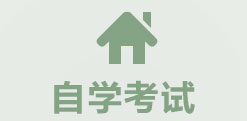
鑷(xu茅)鑰冭│鏄暥(d膩ng)鍓嶅(xu茅)鍒朵腑鐣㈡キ(y猫)鏅傞枔鏈€鐭殑鎻愬崌瀛�(xu茅)姝烽€斿緫锛屼絾鏄€冭│鐩稿皪闆e害杓冨ぇ锛屽嵆鏃ヨ捣鍫卞悕鑷�2015骞�9鏈堝垵鎴銆傛渶蹇彲鍦�1-1.5骞寸嵅寰楃暍妤�(y猫)璀夋浉锛屽湅瀹舵壙瑾�(r猫n)瀛�(xu茅)姝枫€�
閫�(j矛n)鍏ユ嫑鐢熷皥椤� -

缍�(w菐ng)绲�(lu貌)鏁欒偛鍧囩偤鐪佸閲嶉粸澶у(xu茅)鎷涚敓锛屽(xu茅)鍝$洿鎺ュ湪姹熻タ鏈湴瀛�(xu茅)缈�(x铆)鑰冭│锛岀敱楂樻牎鑷富鍏ュ(xu茅)娓│锛岄€氶亷鐜�99%浠ヤ笂銆傚(xu茅)鍒舵檪闁撹純鐭紝2.5骞村嵆鍙暍妤�(y猫)锛屽嵆鏃ヨ捣鍫卞悕鑷�2015骞�9鏈堝垵鎴锛�2015骞�10鏈堟敞鍐婂(xu茅)绫嶏紝2018骞�1鏈堢暍妤�(y猫)銆�
閫�(j矛n)鍏ユ嫑鐢熷皥椤� -
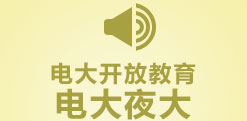
閫氬父绋辩偤鈥滈浕澶у(xu茅)姝封€濅篃绋辩偤鈥濆澶р€濓紝鏄竴绋€氶亷妤�(y猫)浣欓潰鎺堝(xu茅)缈�(x铆)鍙婄恫(w菐ng)绲�(lu貌)瀛�(xu茅)缈�(x铆)鐩哥祼(ji茅)鍚堢殑鏁欏(xu茅)鏂瑰紡妲�(g貌u)鎴愩€傚(xu茅)鍒舵檪闁撹純鐭紝2.5骞村嵆鍙暍妤�(y猫)锛屽嵆鏃ヨ捣鍫卞悕鑷�2015骞�9鏈堝垵鎴锛�2015骞�10鏈堟敞鍐婂(xu茅)绫嶏紝2018骞�1鏈堢暍妤�(y猫)銆�
閫�(j矛n)鍏ユ嫑鐢熷皥椤�
